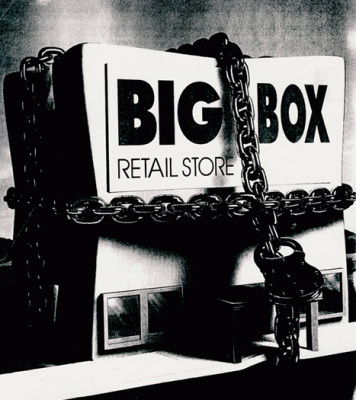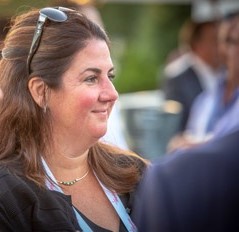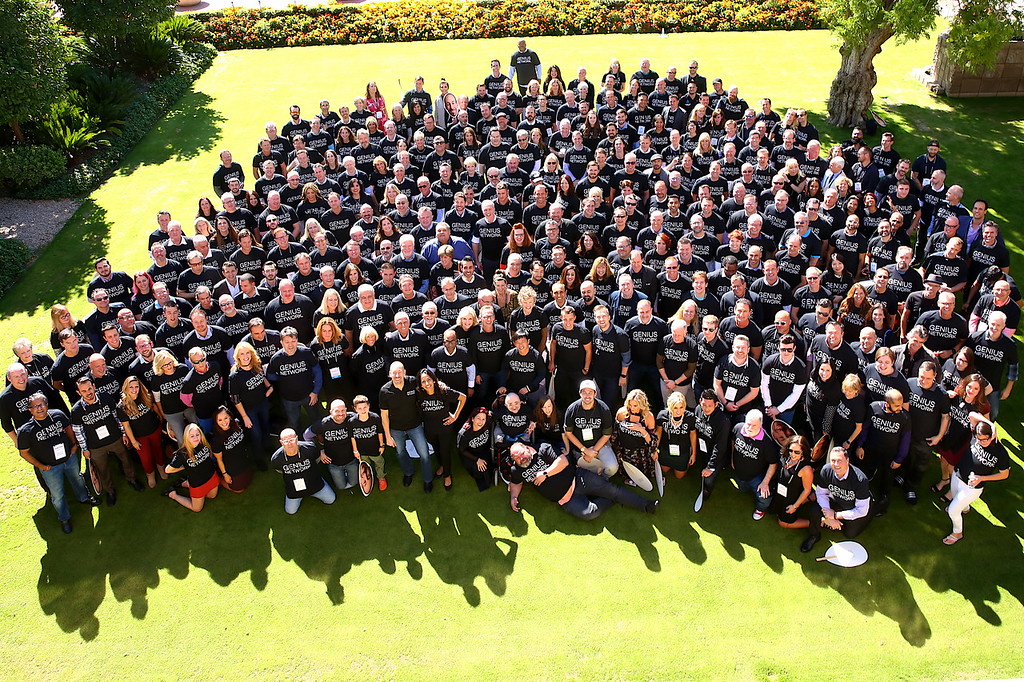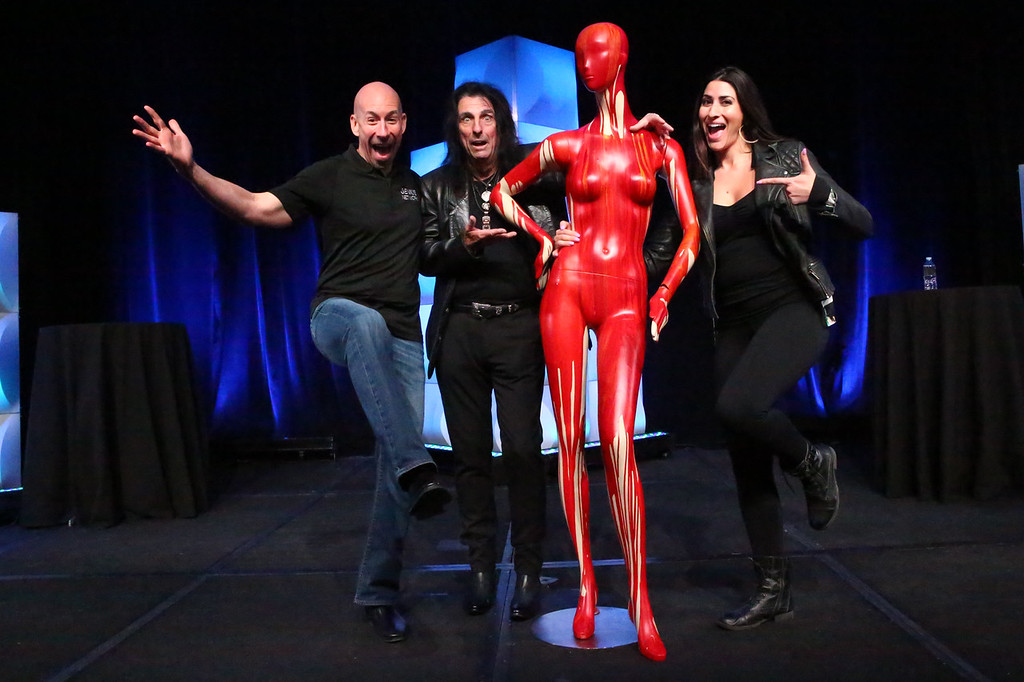4.75 minute read
Phoenix
As Entrepreneur Owner-Managers (EOMs) build our businesses, one massive uncertainty we face is the number of decisions about the proliferation of marketing and selling channels—wholesale, online, retail, catalogue, big box, boutique, branded, private label, others. One major driving force in the growth of some businesses over the last ten years has been their decision to sell to—or concentrate in—online customers like Amazon, or in the big box retail channel.
Some otherwise cautious Owner-Managers have been seduced by the sheer volume and attractive growth rates of the dominant online or big box retail channel as customers for their businesses. We have observed some who, working for years to build volume with small independent customers, become intoxicated at the thought of how easy it is to sell to one customer with millions of website visits or thousands of stores. The customers often boast of their ability to easily double the volume of your business in six months to a year.
In the beginning, everything is great. But over time, Owner-Managers find themselves making more and more impactful decisions not on the basis of increasing revenue from the big box customer, but from fear of losing it. As the big box or dominant online customer becomes an increasing proportion of total sales, EOMs find themselves agreeing to demands that they would never have dreamed of agreeing to from a normal sized customer: line reviews that everyone knows result in never ending price declines, threats of taking the business offshore, “contributions” to advertising, providing selling help in customer stores, providing consignment inventory, and ultimately, extending credit terms far beyond normal industry terms. And all this just before the big box customer or dominant online retailer (under severe consumer price pressure themselves) hires a consulting firm, undergoes some re-engineering, and decides to downsize the number of suppliers it works with!
As Nobel prize winners Dan Kahneman and separately Dick Thaler so convincingly proved over twenty years ago, we Owner-Managers consistently will take on more risk to avoid an increasingly probable loss than we will in expectation of gain. And so there is our entrepreneurial business owner, now with one dominant customer who is dictating product, delivery, quality, price, terms, and conditions. Increasingly fearful of losing that now dominant customer, and having expanded their capacity and fixed costs to accommodate them, the EOM continues unhappily down that road, trying desperately to increase sales to other customers, only to capitulate to the (increasingly unreasonable) concentrated customer demands again and again.
At that point, the Owner-Manager’s choices have limited their opportunity for an enterprise value capture (capital gain) transaction as both strategic acquirers and private equity groups (and their banks) understand and have scar tissue from the danger of investing in companies with that kind of customer concentration. Our friends/clients experiences have shown us that it is impossible for entrepreneurial companies to overcome the sheer scale differences when dominant online, or big box retailers become your most highly concentrated customer.
What I Am Reading / Listening To
21 Lessons for the Twenty First Century by Yuval Noah Harari (2018) is a cognitive banquet. Harari, who I’d have to say is now one of my favorite contemporary authors, is an incredibly gifted and infuriatingly independent thinker whose two earlier books Sapiens (2014) and Homo Deus (2016) are standalone blowout works of art.
Rather than editorialize about Harari or the book, let me just reference three quotes from 21 Lessons:
“The greatest crimes in modern history resulted not just from hatred and greed, but even more so from ignorance and indifference.”
― Yuval Noah Harari, 21 Lessons for the 21st Century
“It takes a lot of courage to fight biases and oppressive regimes, but it takes even greater courage to admit ignorance and venture into the unknown. Secular education teaches us that if we don’t know something, we shouldn’t be afraid of acknowledging our ignorance and looking for new evidence. Even if we think we know something, we shouldn’t be afraid of doubting our opinions and checking ourselves again. Many people are afraid of the unknown and want clear-cut answers for every question. Fear of the unknown can paralyse us more than any tyrant. People throughout history worried that unless we put all our faith in some set of absolute answers, human society will crumble. In fact, modern history has demonstrated that a society of courageous people willing to admit ignorance and raise difficult questions is usually not just more prosperous but also more peaceful than societies in which everyone must unquestioningly accept a single answer. People afraid of losing their truth tend to be more violent than people who are used to looking at the world from several different viewpoints. Questions you cannot answer are usually far better for you than answers you cannot question.” ― Yuval Noah Harari, 21 Lessons for the 21st Century
“The first step is to tone down the prophecies of doom, and switch from panic mode to bewilderment. Panic is a form of hubris. It comes from the smug feeling that I know exactly where the world is heading – down. Bewilderment is more humble, and therefore more clear-sighted. If you feel like running down the street crying ‘The apocalypse is upon us!’, try telling yourself ‘No, it’s not that. Truth is, I just don’t understand what’s going on in the world.”
― Yuval Noah Harari, 21 Lessons for the 21st Century
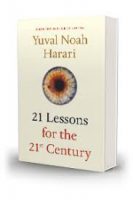
What I Am Watching
First Man (2018), a newly released Steven Spielberg film about the 1960’s decade long race to the moon. Neil Armstrong is the protagonist, portrayed as a scholarly, stoic, uber-rational astronaut who, through a combination of good luck, bad luck, and temperament, was chosen to lead the first lunar landing mission.
My take away from this engaging movie:
- Wow, it is monumentally powerful to set big goals—10X goals not 10% goals.
- How it is relatively easy to bring about big change in organizations in crisis, compared to bringing about change in “successful” organizations (or people). NASA was shocked, paralyzed by Sputnik, and then again by the Soviets having the first spacewalk. They questioned their own relevance, took every challenge and every setback personally.
- What a monumental decade the 60’s were. Where were you when Armstrong’s foot touched the surface of the moon?

Entrepreneur Owner-Manager Quote
“Buckle up and enjoy it!”
-Heather Trigilio, spouse of Mike Trigilio, former owner of Associated Home Care commenting on her emotional highs and lows during their capital gain transaction.
Energy Creation
I had the fun of participating in the annual get together of The Genius Network at the Arizona Biltmore in Phoenix last week, an event curated by Joe Polish. Successful business owners from a wide variety of domains got together for a couple of days to think about themes impacting their businesses, their families, and their lives. I am a huge fan of peer-to-peer networks and this one is no exception.
What I took away from this two-day get together— more than the speakers, more than the venue, more than the themes, more than anything else—was just how this self-described group of EOM “outsiders,” independent thinkers, contrarians, were overjoyed with the positive energy of being with each other (other outsiders, independent thinkers, contrarians)! It was as if they thirsted for being with other Owner-Managers, and actually got some cognitive acceleration from it. Since who you are as person is determined partly by the group you are with, this group was unique fuel for most of us. This was an environment where we EOMs could contribute, collaborate, and create.

